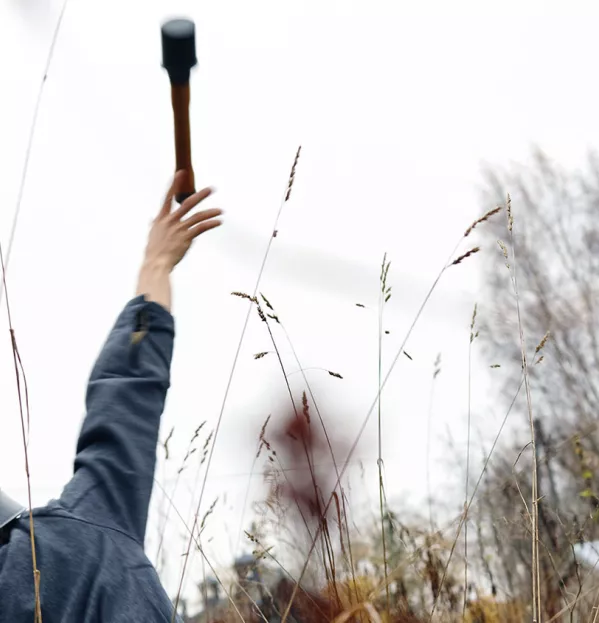As the Finns shelve subjects, colleges take up the theme

THERE’S A major change on the way in Finnish education. By 2020, subjects will, in some schools, make way for a theme-based learning model. For example, the Second World War will be taught by integrating history, geography, science, English and maths. The approach will also be applied to vocational areas. The theme “cafe life” will be a means for teaching maths, languages, writing and communication skills.
This will be one of the most radical changes in the way that subjects have been taught for many years. The reasons are simple.
The Finnish model is an attempt to modernise an education system that has not fundamentally changed since the 19th century - one that is based on exams and the compartmentalisation of subjects. Back then, the disconnection of one subject from another reflected the establishment view of what a young worker needed to know. No need for them to understand the totality - after all, they were only to be “hands” to help the cogs of a particular industry to turn.
In the 21st century, this approach is no longer fit for purpose. But could a Finnish-style approach revolutionise the way we teach in colleges, too?
Exploring a topic across disciplines
Earlier this month, students and staff at six London colleges joined forces for an educational experiment aimed at breaking down the borders of subject-based learning - and the barriers between our communities.
The event, #weareallimmigrants, explored issues around migration to promote diversity and unity. Initiated by lecturers at City and Islington College, colleagues from Westminster Kingsway, Tower Hamlets, Lambeth, Croydon and Hackney colleges also took part.
We explored the theme using a variety of creative means: dance, music, spoken word, photography, design, poetry, essay writing, mathematics, drama, debate and discussion. It was an inspiring week.
At the launch of the week of events, 300 students packed into the atrium at the Centre for Lifelong Learning at City and Islington College to hear performing-arts students’ spoken word pieces about their experiences of migration and life as an immigrant in Britain.
Students from the drama department met with Esol (English for speakers of other languages) students to hear stories of how they arrived in Britain - the struggles and hardships. The drama students then retold their stories and recorded them - you can watch them at bit.ly/CICVoices. The audience was invited to sit in a circle in the theatre with blindfolds on to listen to the recordings. It was a powerful performance.
Business students researched the myths and facts about immigration to Britain. They turned their findings into posters and put them up around the college.
The library teams organised writing competitions and displayed collections of writing on immigration. The #weareallimmigrants theme was integrated into that week’s schemes of work. For example, level 1 art and design students produced drawings, photographs and sculpture to explore emotions and identity.
Students studying GCSE maths used the theme of immigration to help them work out percentages by answering questions such as: “The population of the UK is 64 million. What is the percentage of refugees?” The answer - 0.18 per cent - surprised many.
A-level psychology students looked at the effects migration has on the mental health of children, while level 3 art and design students learnt about how immigration has been portrayed in art throughout the ages. Media and GCSE English students examined how the press covers stories about immigration.
New global perspective
Since the subject-based approach to learning was created, the world has become a very different place. Globalisation has made us far more interconnected. To develop the global citizen, we need a model of education that mirrors the change in this globalised world. The outdated, dogmatic drive by government for a narrow, skills-based educational agenda ensures that our young people are not prepared for the world as it really is in the 21st century.
In 2008, the Labour government tentatively introduced a new secondary curriculum. It attempted to introduce more flexibility about what is taught in the classroom and encouraged more cross-curricular activity. It was a step forward but it was too limited in its approach. Unfortunately, even this timid attempt to introduce a curriculum that allowed students to locate an understanding of a subject in a wider context has been marginalised.
At the time, Andrew Motion, the then poet laureate, called for an end to education being approached as “a massive cramming job, in which pupils are coerced into swallowing and, with a bit of luck, digesting the facts and figures that equip them for later life, but rather to present education as a form of personal development”. We need to revisit this model with a far more radical approach - to design a curriculum that is based on themed learning, with which young people are encouraged to understand the totality and feel that they are part of it.
One of the winners of the writing competition, from Iran, expressed beautifully what a global citizen is and what they hope for: “Borders are only signs on maps. We are human. We want to live anywhere without force. Life continues, I strongly believe that. My land is inside the hearts of the people who love me and I respect them.”
We need an education system that matches these aspirations and experiences.
Sean Vernell is a GCSE English teacher at City and Islington College. He writes in a personal capacity and tweets at @62seanv
You need a Tes subscription to read this article
Subscribe now to read this article and get other subscriber-only content:
- Unlimited access to all Tes magazine content
- Exclusive subscriber-only stories
- Award-winning email newsletters
Already a subscriber? Log in
You need a subscription to read this article
Subscribe now to read this article and get other subscriber-only content, including:
- Unlimited access to all Tes magazine content
- Exclusive subscriber-only stories
- Award-winning email newsletters